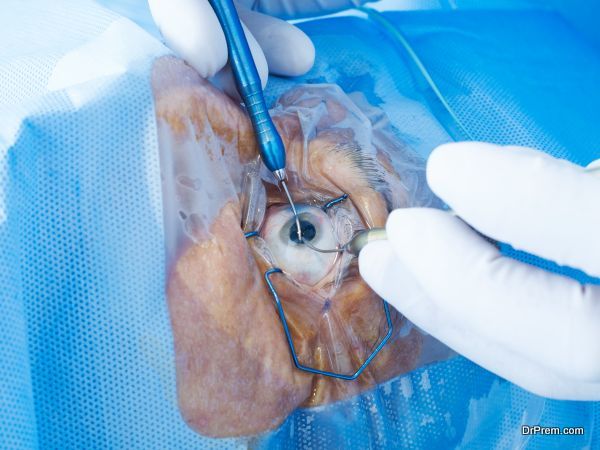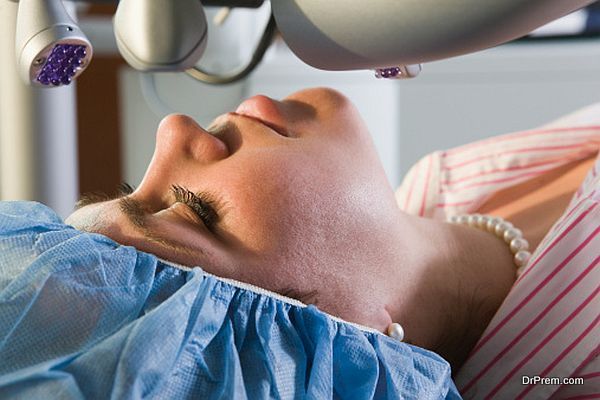Cataract surgery is a common surgical procedure that removes the cloudy area from the eye lens. Recovery post surgery is usually short if there are no complications. The complication risk is quite low and almost all of them are treatable. People who have other eye diseases besides cataract are more prone to cataract surgery complications. The best way to deal with cataract surgery woes is to know about the complications that could threaten recovery after cataract surgery.
Complications that may occur post cataract surgery include –
Cloudy Vision and PCO
One of the most common cataract surgery complications that some patients experience is the PCO (posterior capsule opacification). Also known as secondary cataract, the condition makes vision cloudy. Besides being a common complication, it is easily treatable as well. During the cataract surgery, an artificial intraocular lens is inserted in a patient’s eye. However, the previously mentioned complication arises when a membrane grows in the lens capsule.
It is within two years of the cataract surgery that Posterior capsule opacification complication develops. Treating PCO is quite simple and quick, as surgeons remove the unwanted growth on the lens capsule using a laser. This low-risk and noninvasive treatment takes no more than a few minutes and eyesight comes back to normal within a few days.
Other complications
The other complications related to a cataract surgery are even rarer and can take place during or after the surgery. As most of these complications are not that serious enough, to treat and rectify them is also easy. Damage to the lens capsule, damage to the other parts of the eye, unsuccessful or partial removal of the cataract, bleeding and infection are those rare complications. However, these complications stand minimal chance in surgeries performed by skilled and seasoned surgeons. Some complications arise during recovery as well that include corneal swelling, retinal swelling, drooping eyelid and inflammation in the eye.
Dislocated IOL is one of the serious cataract surgery complications that takes place if the artificial lens dislocates. To treat this condition, a patient requires undergoing a second cataract procedure. Another serious complication is the retinal detachment. A serious condition demands immediate medical attention.
The symptoms a patient might experience include distorted vision, floaters and flashes in the eye. This serious yet rare complication is not always a result of an unsuccessful surgery. To get rid of it and to restore vision, patients need to get their retina reattached. For more cataract surgery complications, click here.
Precautions
To avoid all the complications related to cataract surgery, patients can take a few precautions. They must discuss all their medicines with the surgeon, as some medicines do interfere with the surgery in some way or the other. They must talk out all their worries and fears to the surgeon, who in turn ca figure out the best possible way. In addition to these basic precautions, patients must take proper eye care after surgery. In case one experiences any symptom that is worth getting worried about, a visit to the eye specialist is must.





